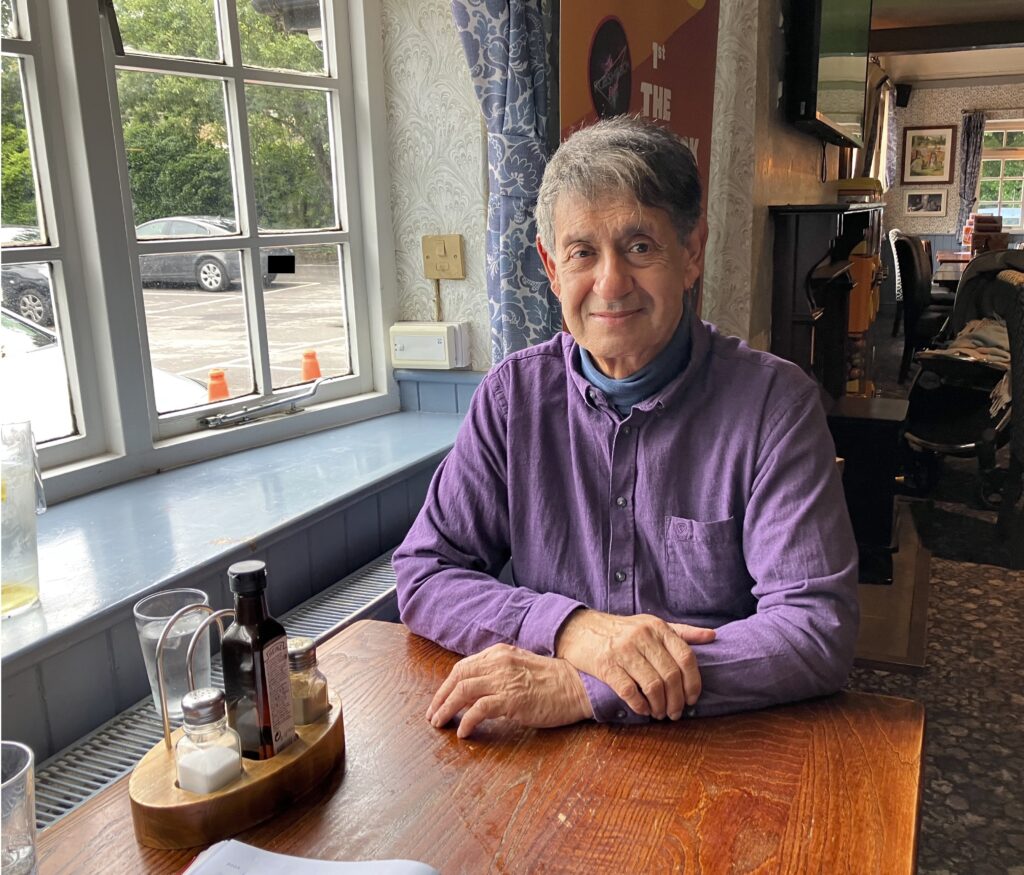
Introduction
Dr Taj Hargey is one of the most dynamic, outspoken and controversial figures in Islam today. He is a citizen both of the UK and South Africa, and divides his time between the two. In South Africa, he is president of the Cape Town Open Mosque, which he founded despite virulent opposition from local clergy. In the UK, he is imam of the liberal Oxford Islamic Congregation and provost of the Oxford Institute for British Islam. OIBI was founded in 2021; according to its website, its aim is the ‘full integration of the British Muslim community into the UK mainstream’. Its board includes liberal Muslims and non-Muslims, among them Steven Greer, the law academic accused of Islamophobia, and Hargey’s wife, Professor Jacqueline Woodman, an NHS consultant and Unitarian Christian.
Hargey was born in Cape Town during South African apartheid. His family are Muslims of slave descent (as he himself puts it) from Malaysia, Indonesia and Sri Lanka. He read History and Comparative Religion at the University of Durban. He then studied in Cairo and Leiden, before coming to Oxford, where he completed a DPhil on slavery in Islam at St Antony’s College. He then taught at universities in South Africa and the US before settling permanently in the UK in 2001.
I met Hargey at the White Horse pub in Headington, east Oxford, over lunch and a glass of water. In this interview, we discuss his interpretation of Islam, why he looks only to the Quran and not to later Islamic texts, and how he believes his interpretation is relevant to life in modern Britain. We also consider the tradition of free thought within Islam, the unholy alliance between the political left and Muslim fundamentalists in Britain, and Hargey’s plans for OIBI.
This interview was conducted before the outbreak of the present conflict in Israel and Palestine. Since then, Hargey asked to speak to me again, this time via Zoom, to outline his view of the conflict, and argue that the British mainstream media are unfairly biased in favour of Israel. This second interview is appended as the last section of the edited transcript below.
As always, writers and interviewees featured in the Freethinker are responsible for their own views. Our aim in publishing them is to open up the discussion, and thereby to foster, among people with different opinions, a culture of free, rational thought and shared humanity.
~ Emma Park, Editor
Interview
What is your view about the status of the Quran?
The Quran says that it is a revelation from the divine. The Quran that we have today, 1445 years after the Prophet’s death, is exactly the same as it was then. The evidence of early manuscripts dating from the early seventh century supports the claim that the Quran existed during the lifetime of Muhammad. Muslims are taught that he was a conduit, the channel for divine revelation. He was not the author or the architect of Islam’s sacred scripture. One proof that Muhammad was only a conduit is that he is only mentioned by name four times, and is often castigated. Now if you are the author of a document, and not just a vehicle for someone else, do you go about rebuking yourself?
I suppose the Christian fathers did.
Yes, but the Christian fathers did not claim to be Jesus, so that is different. In fact, in one set of Qur’anic verses, God confirms that the Quran is a revelation from the Lord of the world – and if you, Muhammad, tamper and distort these messages, I, God, will seize you by the right hand and sever your throat.
Does viewing the Quran as the word of God ultimately rely on an act of faith – on believing in God in the first place?
Yes. But for myself as a historian, the fact that there are no fundamental discrepancies between the manuscripts of the Quran over 1500 years is an indication that it has a celestial origin, because the basic message has remained untampered with. This message is that there is one God, one humanity, one destiny. We will all be held accountable for the mad, the bad and the sad things that all humans do. The Quran says explicitly that it is a guide for humanity and that it is both timely and timeless.
I firmly believe there is an afterlife because I do not think that my existence here could have enough purpose otherwise. If you have met, say, a deeply devout monk or nun, they have attained certain harmony in their lives that the rest of us do not have. Rather than capitalism and consumerism, this enslavement to which we are addicted, this enlightened nun or monk has achieved something better. They are no longer prisoners of the material world. That for me is indicative of genuine spirituality.
I suppose the humanist response to that would be that spirituality, or a sort of philosophical equivalent, can be found in contemplating the universe as it is.
I do not have any issue with humanists and secularists. What I am against is belligerent atheists and belligerent Muslims, intolerant Jews and intolerant humanists who believe that theirs is the only way. The Quran says that there is no compulsion in matters of religion. People should not be forced to believe something against their will. The Quran says that God alone is sovereign on the Day of Judgement.
You have spoken about the importance of the afterlife. How do you think non-believers will be treated there?
It is presumptuous of me to think that they will be burnt in fire. The atheist may not believe in God, but, like the believer, he also does not think he can go through life without accountability. God will be, I think, just and equitable with the atheist. Because if he is not, I do not want to believe in a Creator like that.
The Quran says that Muslims have a double duty: first, to promote unqualified monotheism; second, to relentlessly pursue universal justice and virtue. If people do unjust, wicked things, then in terms of Qur’anic Islam, I have to resist and oppose them.
That strikes me as a very individualistic approach.
Yes, but Islam is both individualistic and collective. For example, we pray daily alone. Once a week we go to the collective of the mosque. The individual soul matters. The Quran states repeatedly that no soul will bear the burden of another. In contrast, the Christian view of vicarious atonement – of inherited sin, because of Adam and Eve’s indiscretions – is illogical. But we individuals are also part of a collective. John Donne said it beautifully, that no man is an island.
What is the function of the collective?
It should help the have-nots. The Quran tells me and every observant Muslim, that every day you are tested to see if you will do good. Take, for example, the Ukrainian refugees, the starving Yemenis, the displaced Rohingya and what has happened in the civil war in Sudan – we cannot sit on the fence. We need to take a position and to help.
If there were in fact no God, would that matter to you?
Yes, it matters to me in the sense that I do not believe creation could have happened without the Creator.
Does that not raise the question, who created the Creator?
No, there is no need for that because the Creator is the ultimate source.
At the Freethinker, we have previously considered traditions of dissent and free thought in the Islamic world. From your perspective as a scholar of Islam, to what extent has there been room in the history of this religion for adopting different perspectives?
The Quran says repeatedly, Do you not understand? Can’t you see? Why don’t you use your reason? The Quran declares that people who do not want to think are worse than cattle. In early Islamic history, free thinking was not a Christian invention – it was a Muslim invention. A group called Mu’tazilah were the original free thinkers in Islam. They ruled for about 200 years until they were crushed by the orthodox. They believed that the Quran was for free thinking and the right to dissent and to be nonconformist. What I am doing is a new Mu’tazilism – it is not something that I have invented.
Scientific inquiry is a requirement. That is why, for example, I am so proud to be part of the assisted dying movement. I am the only imam involved – the only Muslim scholar and theologian. But I believe that, if I have incurable stage five cancer and I am suffering horrendous pain and causing distress to my loved ones, I should not subject them to six months, a year of more of the same.
You advocate an interpretation of the Quran which considers it both within its historical context and as timeless. Would you say that its ban on eating pork still needs be followed by Muslims today?
It has been proved that in hot climates, if you do not husband pork properly, there is a great deal of illness and disease associated with it. You could argue that, with modern animal husbandry, there is probably less. But the Quran says very clearly that the flesh of the pig is prohibited, nothing about its skin for example. I think that today this prohibition just has a historical legacy – and I am happy to admit that. But because of that heritage, it would be difficult to overturn it. Jews do not eat pork, Muslims do not eat it.
What about alcohol?
God is not against red wine. God is against drunkenness. For example, if the Muslim out there wants a glass of red wine or spirits and he is not inebriated, I do not think it is really wrong. But I do not drink alcohol myself.
And polygamy?
Polygamy is also misunderstood. In seventh-century Arabia, when Muhammad was alive, a woman was the possession, the chattel of the men in her life. First her father, then her brother, then her husband and son. After a major battle in which many men were killed, a temporary permission was given to Muslim men to marry up to four widows (not virgins). And the Quran also says you can only marry up to four provided you treat them equally. That was and remains a key caveat. Now, I do not know about you, but I do not think I can love two people equally and on the same level.
As for Muhammad, he married his first wife, who was 15 years older than him, at the age of 25, and remained monogamous with her until her death. After that, his later wives were result of tribal allegiances and political links – the Quran gave him a special dispensation. Altogether, the Islamic permission for men to marry more than one wife was a limited licence for specific circumstances. It was later hijacked and misinterpreted by the orthodox clergy to apply to all men, especially in countries like Saudi Arabia, Qatar and Kuwait. But the thrust of Islam is monogamy.
What about women’s hair and face coverings?
My intention is to bring Muslims back to the Quran, because the Quran repeatedly asserts that it is enough by itself. Regrettably, most Muslims have been conditioned to believe in supplementary sources: the Hadith, the Sharia and the fatwas. This toxic trio has undermined the purity and originality of the Quran. Take the word ‘hijab’. It is mentioned eight times in the Quran, but not once does it refer to a hair covering. The terms burka and niqab are nowhere to be found in Islam’s transcendent text. If a woman wants to cover her hair, I have no issue. However, if she says this is an Islamic requirement, then I will tackle that, because it is a blatant lie, a preposterous untruth.
Does food need to be halal?
Halal is the biggest racket in this country and other parts of the Islamic world. Muslim entrepreneurs claim that Muslims can only eat meat which is slaughtered in a certain manner in the name of God. But this orthodox interpretation is from the old country – it makes little sense in Britain today. I say, with all due respect, that God made this food and I thank the Lord for giving it to us. That is how I make it halal. All of these dietary ideas have to be revisited and restored to their pristine Quranic ethos.
Your interpretation of the Quran is much more liberal than many people’s, including that of many Muslims in Britain.
Yes, but my liberalism is derived purely from the Quran itself. I come from a fairly orthodox, Sunni traditionalist background and I was a committed young Muslim teenager. But as a student, I spent eleven years as a free thinker and spiritual wayfarer. I tried transcendental meditation, I attended Jewish Kabbalah, Sufi, Christian, Hindu, Sikh, Baha’i – all types of religious manifestations.
When I embarked on my research at Oxford, I discovered that the programmed version of Islam that I had been spoonfed as a child was codswallop: they had brought me up on populist Islam and not Quranic Islam. When I discovered that, it was like a light bulb going on in my head: I realised that I had been misled. In the Quran there is an emphasis on reflection, rationality and logic.
If Muslims in Britain would just go back to the Quran, jettison the Hadith, discard the Sharia and ignore the fatwas, we would have no extremism or fanaticism. We would just have mutual coexistence and peaceful harmony.
In Britain, how widespread is your interpretation of Islam?
It is a minority view at the moment. If we have to use rough percentages, I would say about 75 per cent are traditionalists, orthodox, fundamentalists, and intolerant of others. Then we have about 5 per cent who have left Islam, the ex-Muslims. Then we have about 15 to 20 per cent of people like me who are searching for the truth and want to see an Islam that is rooted in and relevant to this society: an allegiance to the Islamic faith stripped of cultural accretions and dogmatic traditions that themselves have no foundations in the Quran. An Islam that is not linked by an umbilical cord to Afghanistan, Pakistan, Iran, Saudi Arabia, Yemen, Egypt or Morocco, etc.
How do your British and Muslim identities relate to each other?
I have multiple identities. I am Muslim, British, South African, and there is no incompatibility or confusion. I choose to live in Britain because it allows me freedom. The type of forward-looking rational Islam that I am promoting – I cannot do it in Saudi Arabia, Iran or Pakistan. I can do it here freely. For that reason, I am very attached to Britain, and also for historical reasons. Britain was the colonial power in South Africa, the mother country. We looked up to the UK, to Shakespeare, the British Parliament, cricket, football, all these cultural, political and historical connections. I lived for 15 years in the United States, but I never felt at home there. Here in Britain, I feel at home.
You left America to settle in the UK not long before the 9/11 attacks. What impact did the attacks have on your life and your way of thinking?
Of course, I was shocked and stunned like everyone else. Nearly 3,000 people were killed. We did not know for sure at the time, but it was most likely that Muslims were responsible. And so, I went to the main mosque in Oxford. Two of my colleagues went to the other two smaller mosques. Guess what the imam said that Friday? Nothing. It was as though this catastrophe had never happened.
That was the trigger for me: I decided this had to change. That is when my colleagues and I started the Muslim Educational Centre of Oxford, a small religious organisation that would provide Friday prayers, offer an alternative narrative to other clergy, empower women, engage in interfaith dialogue and so forth. I had all those ideas before, but 9/11 was the trigger to do something concrete.
How big is the Muslim Educational Centre now?
We fluctuate. When there are communal events, there are around 50 or 70 people. They are free-thinkers like myself as well as a good number of non-Muslims. People of other and no faiths come because they want to hear a palatable, logical interpretation of Islam.
You are also the imam of the Oxford Islamic Congregation. How does one become an imam?
This is both the strength and the weakness of Islam. To become a Christian minister, you have to go through formal schooling. That can be a weakness, because the appointments are top-down. In Islam, any man – only a man, sadly – who is knowledgeable, virtuous and pious can become an imam. The weakness is that any Tom, Dick or Harry can also become one. The strength of Islam is that it allows a grassroots leadership to emerge. The weakness is that this grassroots leadership, if it is not properly self-regulated by the congregation, can lead to fanaticism and intolerance.
At the Open Mosque that I established in Cape Town, there are five foundational principles. First, we follow the Quran alone. Second, we believe in gender equality. In the mosque, there is only one door, through which both men and women enter; inside, men and women pray together, just separated by an invisible metre, so that worshippers can focus. Third, the Open Mosque is non-sectarian – we admit all denominations. Number four, we are intercultural, not multicultural – all different cultures can come together. The last feature that the Muslim clergy do not like in South Africa, is that we are independent. All are welcome, Muslim and non-Muslim.
We have been going for nine years now, and during that time, the clergy have sent their Muslim thugs four times to fire-bomb us. Once they sent a bunch of killers with AK-47 machine guns to shoot me – luckily, I was not there that evening. The community is quite small, about fifty people, mainly because the clergy has scared all the local Muslims and told them that if they attend the Open Mosque, they will not be given a formal Islamic burial ceremony.
In conservative Muslim families, how much pressure is there on individual members not to become more liberal?
The pressure is very great. For example, the women are told, if you do not cover your hair, you are no longer a Muslim, you are defying the prophet. Most Muslim men wear beards, because Muhammad did. But that was the fashion of his day, not mine. I will never wear a beard. Superficial symbols, external emblems like that do not make me a Muslim. I am a Muslim from within.
As you mentioned earlier, in Britain, about 75 per cent of the Muslim population are conservative. Do you think they are less integrated into British society than they were, say, twenty years ago, and if so, how can they become better integrated again?
Yes, I do think they are less integrated now. This situation has come about because most of the imams in British mosques are, on the whole, imported from Pakistan, Bangladesh, Sri Lanka, India and the Middle East. Because they do not know about British society, the culture, the history of this country, they cannot provide adequate guidance and effective supervision to people living here. They give the solutions of the old country, but those will not work here. That is the biggest problem. The solution is to have a new generation of British-educated imams who have been taught to think liberally and to look to the Quran alone.
Is that something you are trying to do with the Oxford Institute of British Islam?
The aim of the Oxford Institute of British Islam is to promote and champion an Islam that is integrated, inclusive and indigenous to this society. Through publications, conferences, seminars, workshops, we are providing a valid alternative to fundamentalist Islam. We show that from the Quran, that their views regarding, for example, female genital mutilation, are nowhere mentioned in the Quran (they are mentioned in the Hadith), and should not be tolerated.
This idea of ‘us’ versus everyone else, perceived as ‘Kaffirs’ or non-believers: the Quran does not talk like that. The Quran says we should come to a common understanding and fight for common causes. Common causes for us now include climate change, homelessness, economic disparity, food banks – how we can provide and help those who are really at the bottom of the barrel.
Who is funding OIBI?
At the moment it is funded by our members, but none of them are wealthy. We are looking for rich Muslim donors. We do not want to take any money from abroad. We only want British money, preferably Muslim money, without strings attached.
How many members have you got at OIBI at the moment?
Right now, about 60. I think the first five years will be a hard slog. But we have a valid message for modern Muslims. The indoctrinated message that they have from fundamentalism is the message of yesterday. Our message is for today and tomorrow.
Would you agree that in recent years, fundamentalist Muslims often seem to have fallen in with hard left-wing progressives? If so, how has this come about?
The reason why we have this unholy alliance between the British Left and the Muslim fundamentalists is that the British Left have a guilt complex of colonialism, imperialism and white racism. They think they can make amends by kowtowing to identity politics. But they are actually shooting themselves in the foot, because when they support these fanatical Muslims, that does not advance the cause of the Left in this country, it only exposes them as useful idiots who are being exploited by the fundamentalists to advance their own reactionary agenda.
An argument sometimes made by the same left-wing progressives is that criticising cultural practices like wearing the veil should be avoided because it plays into the hands of Islamophobic right-wing bigots. What is your response to that argument?
First, people who say we should not be criticising the burka (facial masking) or the hijab (hair covering) might as well say that we should not criticise female genital mutilation. If they are happy to reject FGM, why are they so keen to avoid criticising another cultural practice – wearing the burka or hijab – when it can also cause harm? The British Left has been seduced and brainwashed by the fundamentalists into thinking that the hijab, the niqab, the burka are all intrinsic to Islam. No, they are essentially cultural practices and have nothing to do with Qur’anic Islam.
On the topic of Islamophobia, the Muslim Council of Britain and the All Party Parliamentary group on British Muslims have defined this concept as follows: ‘Islamophobia is rooted in racism and is a type of racism that targets expressions of Muslimness or perceived Muslimness.’ What is your view of this definition?
I do not think that Islamophobia is based in racism. Muslims come from all races. There are white Muslims too. Hostility against Muslims is not based on race. It is based on a feeling of bigotry, hostility and antagonism that is related to religion rather than race. These bigots are against the Islamic faith. But Muslim stupidity can increase anti-Islamic sentiment – for instance, if organisations like the Muslim Council of Britain fail to acknowledge that some Muslims have been complicit in terrorism, promoting sharia law and other egregious things. Even if, individually, we have not been complicit in these crimes, we as a collective need to acknowledge that they have originated among Muslims.
The issue of free speech regularly crops up in instances of alleged Islamophobia – for example, in Steven Greer’s case. Would you say that there is a valid distinction to be drawn between criticising ideas like Islam or any religion, and criticising the people who practise it?
Everyone should have the right to criticise everyone and everything. That includes religion. I, as a Muslim, criticise Islam all the time. I am a Voltairist: I will defend to the death your right to say something, even when I do not agree with you. There is no contradiction in my being a Voltairist and being a Muslim. Islam talks about the fact of free speech: if there is no free speech, free will and free choice, how can there be a God that you can believe in? Because then you are being forced into believing – and Islam does not talk about coercion. In fact, the word ‘Islam’ has a double meaning. First it means ‘peace’ and second, ‘submission and surrender’ to the Creator. The word ‘Muslim’ simply means ‘he or she who has submitted to the divine’. Free expression is integral to Quranic Islam, but not to Hadith-Sharia Islam.
Is there such a thing as the sin of blasphemy?
The Quran says, People will blaspheme, but leave them alone, I (the Almighty) will deal with them. As to apostasy, the Quran says people of course will leave their faith. In the morning they will believe one thing and next day they will believe something else. The Quran declares time and again, leave the apostates, I, the Creator, will deal with them.
Do you think that the way that Muslims are presented in the media and in advertising is doing Islam a disservice?
Absolutely. For example, if you see any BBC publication involving a Muslim woman, she is wearing the hijab. Why is that the defining norm, when it is not a requirement of the Quran? It is a sort of unspoken propaganda. They are telling the audience that Muslims have a uniform – I have a beard, you have a hijab – and that makes us Muslim. How absurd!
Presumably you want everyone in Britain to understand these types of issues better.
Yes, that is why this is part of the remit of the Oxford Institute of British Islam. I believe that, if we start from the grassroots, no one will take any notice of us. For this reason, OIBI is more of a scholarly think tank, driving a rational and intellectual analysis of Qur’anic Islam.
And you are not yet affiliated to Oxford University?
No, we want to take our time but remain autonomous. We are currently negotiating with one or two colleges. We then hope to make institutional connections with the university. We want to be an alternative to the Oxford Centre for Islamic Studies (OCIS), which cost around £100 million to build, and we want to provide something of real everyday practical use for Muslims in Britain.
[The 13 trustees listed on the OCIS website include HRH Prince Turki Al Faisal, HRH Sultan Nazrin Shah and other leading figures from Malaysia, Turkey, Saudi Arabia, Kuwait, Nigeria, Indonesia and Qatar, as well as four non-Muslims. Saudi Arabia is among its major funders. It is an independent institution, although its governance structure includes several Oxford academics, and it has close associations with various colleges and faculties – Ed.]
Are there any other projects you are working on at the moment?
I am now sort of retired, although I still supervise some graduate students. I want the Open Mosque in Cape Town and OIBI to provide a legacy of a pluralistic, pertinent and progressive Islam. If we succeed in getting this message across to some Muslims, it will be a great achievement. We want to appeal not only to the taxi drivers and supermarket workers, but also to the movers and shakers: the academics, scholars, lawyers, dentists, doctors, engineers, architects, teachers and technocrats.
• • • • • • • • •
Addendum: Taj Hargey’s position on the Israel-Palestine conflict, and response to a few additional questions from the Freethinker
I want to make it crystal clear that this is not a fight between Islam and Judaism. It is not a fight between Muslims and Jews. It is a fight between European settler colonialism and legitimate Palestinian resistance. People in the UK, Muslims and others, need to understand this. This has nothing to do with Jews and Muslims or Islam and Judaism. It is to do with a colonial settler project that was funded and supported and initiated by Europeans, mainly out of collective guilt, especially after the Holocaust. Half a million people were recently out on the streets of London protesting this barbaric onslaught against Palestine, and the total disproportionate vengeance by a right wing, fascist Israeli government – that is what it is: Netanyahu and others are right wing, ultra-fascist zealots. They are in control of Israel and they are inflicting disproportionate vengeance.
I condemn unequivocally what Hamas did on 7th October. There are no ifs and buts about that. But the question is, how many people will be the right exchange rate? At the moment, twelve or thirteen thousand Palestinians from Gaza are dead. 1300 Jews are dead. So, the current ratio is one to ten. What will be the exchange rate in another week’s time, another month’s time? One to 20? When is this madness going to stop? And why is it all Western European countries in particular, who have got a real stain on their collective history of being anti-Semitic for 2000 years, culminating in the Holocaust, supporting the Zionists in Israel. In 1917, Arthur Balfour, the Foreign Secretary at the time, declared that Britain would favour the establishment of a Jewish homeland in Palestine. If you look at Belfour’s legacy in history and his background, he was a rabid anti-Semite. He felt that the way to deal with anti-Semitism in Britain was to get rid of the Jews altogether and send them to Palestine. That is an uncomfortable part of British colonial history. We do not want to know – we want to whitewash it.
These are the points that people really should understand. When you have the world’s largest open-air prison, which Gaza is and still remains, what are the occupied and oppressed supposed to do? I am not for one minute applauding or justifying or condoning what Hamas did. They did something totally brutal, inhuman, unconscionable. But the veneer has now been stripped from what Israel is doing. It presented itself all this time as a democratic, civilised society, but now we have these right wing, ultra-fascist Zionists ruling the roost. People in Britain, especially the right-wing press, fall over themselves to accommodate Zionism. We must never tolerate a colonial project that ignores the indigenous inhabitants. We should accommodate Jews, yes. Accommodate Judaism, yes. But to say that Zionism and Judaism are inextricably linked and they are the same, or they are synonymous, is totally nonsensical.
Any scholar worthy of his or her salt should read two books on this issue, one by the Israeli historian Ilan Pappe, The Ethnic Cleansing of Palestine, and the other by the Palestinian American historian, Rashid Khalidi, The Hundred Years’ War on Palestine: A History of Settler Colonial Conquest and Resistance.
Of course, Israel should exist. But it must not exist on the basis of confiscated, stolen, expropriated and annexed lands.
In your view, what is the best way of resolving the present conflict?
I think initially there should be a two-state solution. But the ultimate goal should be a one-state solution, a democratic state where everyone has equal rights.
Should that be a state of Palestine or Israel?
No, it should be a bi-national state – both of them. I think we will have to go through a preliminary phase first, which is to have this two-state solution as an interim for 20-30 years, to build confidence and see what can be done in bringing these two peoples together.
What are the barriers to an ultimate one-state solution? Do you think it is realistic that Muslims and Jews in such a fraught area will ever be able to live together in harmony?
Historically, Muslims and Jews lived together very amicably for the most part, until the introduction of this political ideology called ‘Zionism’ in the late nineteenth century. Zionism is an invention of secular atheist Jews that started in Europe. Its forefather was Theodor Herzl, an Austrian Jewish journalist.
On the other side, to what extent would you say that some Islamic regimes are responsible for stirring up anti-Semitic feeling in the Israel-Palestine area?
Arab nationalism will take any excuse to foment friction and tension. But the root cause of this conflict is not between Islam and Judaism, between Muslims and Jews, but between Zionist colonial settlers and the legitimate Palestinian resistance. That is the fight. And so, yes, there are going to be some regimes in the Arab world and elsewhere that will want to stoke it, but you cannot get away from the fact that this is a colonial enterprise. Israel would never have been able to exist without the unwavering support from European and Western powers.
Isn’t religious hatred also part of this conflict?
Islam is not anti-Jewish. It is against injustice and oppression regardless of background and belief.
Presumably you would want to distinguish between Hamas, the regime, and the Palestinians, just as you would want to distinguish between Netanyahu’s regime and the Israelis?
Yes. We have to be consistent here. My beef with the British establishment is that they are not consistent. If they were consistent, they would not be blindly supporting the Zionist Israelis. Consistency will lead to fairness and impartiality. But there is no fairness or impartiality from the British establishment or from the rulers and movers and shakers in this country. It is a reflex action to support the Zionists, because they cannot make the distinction between a Zionist and a Jew. And Israel had deliberately obfuscated this distinction.
The BBC has been criticised for not calling Hamas a terrorist organisation. In your view, is it a terrorist organisation?
One man’s terrorist is another man’s freedom fighter. Margaret Thatcher called Nelson Mandela a terrorist. Why can’t we use neutral terms – why are we using one-sided terminology? In this context, Israel benefits from using that terminology, because you demonise the other. Hamas are all Sunni fascists, as far as I am concerned. But they think that all’s fair in love and war, because they are fighting what they perceive as oppression. Who are you or who am I to tell them how to fight?


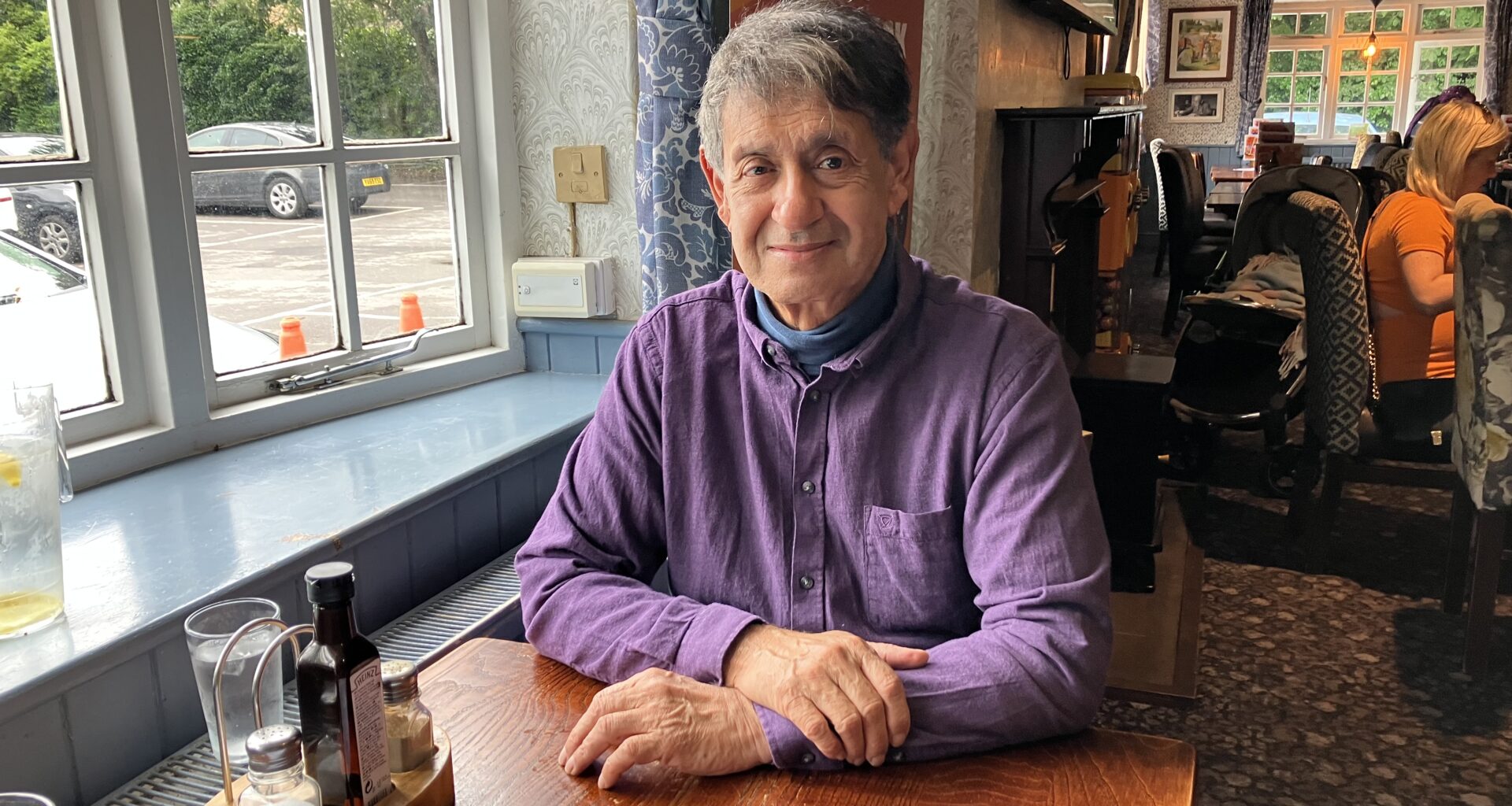
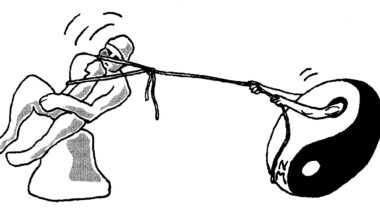
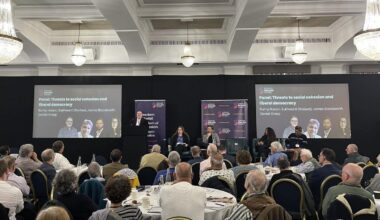
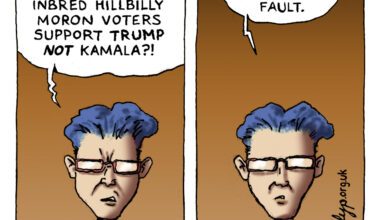
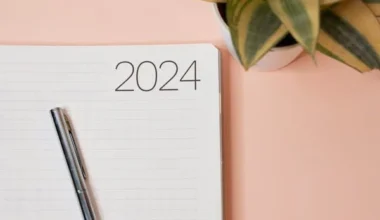
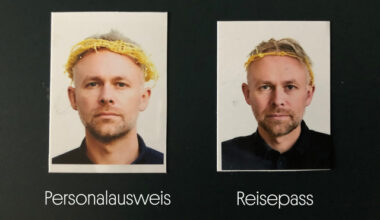
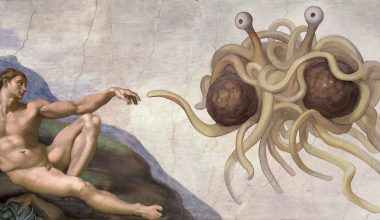
3 comments
Taj Hargey seems like a nice man. He is to be congratulated on his rejection of the Hadith and Sharia. However, when he says, “This idea of ‘us’ versus everyone else, perceived as ‘Kaffirs’ or non-believers: the Quran does not talk like that” – it makes me wonder if we are reading the same Quran.
Whoever wrote that book is absolutely obsessed with ‘non-believers’ and frequently revels in the terrible fate that awaits them in this life and the next. This occurs on virtually every page of the Quran.
If anyone should disbelieve this truth, then let him open the Quran at a random page and begin to read thereof. Verily he will come upon a verse berating the infidel, even before his mind becomes numbed by the deathly prose of that soporific tome.
Orthodox religions are akin to footabll teams, pick a colour to support and trash the opposition. Even ‘beleivers’ are infidels to the opposition team. Far better to do a route cause analysis and increase understanding of how we got here, after all, the football teams are playing the same game – obfuscation and mind control.
Obfuscate comes from the Latin prefix ob- (meaning “over” or “completely”) and fuscus (“dark-colored”). That fact gives an idea as to how the word can refer to making something difficult to see or understand—much like how dark, dirty water makes it hard to see the bottom.
For Freethinkers, when our time and energy as so important to us, it’s better spent researching those who are pioneers in heresy. One such heretic is https://www.maurobiglino.com – the Naked Bible will explain the origins of all the football teams and why they are largely irrelevant to what may be on the horizon.
“When translated in a literal way, or “naked”, the Bible is wildly different from how it has always been narrated: there is not any almighty and all-knowing God, and there is no notion of eternity.”
ACCIDENTALLY POSTED THE DRAFT:
FINAL VERSION
Orthodox religions are akin to football teams; pick a colour to support and trash the opposition. Even ‘believers’ are infidels of the opposition team. Far better to do a root analysis and increase understanding of how we got here; after all, the football teams are playing the same game: obfuscation and mind control.
Obfuscate comes from the Latin prefix ob- (meaning “over” or “completely”) and fuscus (“dark-colored”). That fact gives an idea as to how the word can refer to making something difficult to see or understand—much like how dark, dirty water makes it hard to see the bottom.
For freethinkers, when our time and energy are so important to us, it’s better spent researching those who are pioneers in heresy. One such heretic is https://www.maurobiglino.com, where the Naked Bible will explain the origins of all the football teams and why they are largely irrelevant to what may be on the horizon.
“When translated in a literal way, or “naked”, the Bible is wildly different from how it has always been narrated: there is not any almighty and all-knowing God, and there is no notion of eternity.”
Your email address will not be published. Comments are subject to our Community Guidelines. Required fields are marked *
Donate